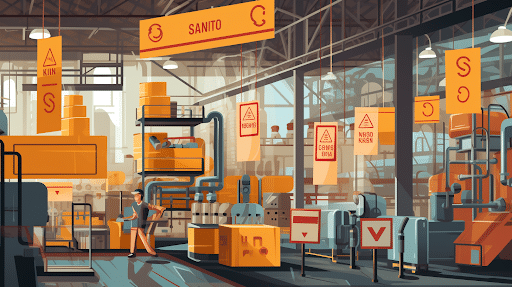Contract manufacturing offers numerous benefits such as reduced costs, access to specialized expertise, and increased flexibility. However, it is essential for businesses to make informed decisions and take steps to mitigate the variety of risks associated with outsourcing if they want to successfully reap all of its advantages. In this article, we explore the risks that can arise when working with a contract manufacturer. By understanding these in advance, you can take proactive steps to mitigate them and ensure a successful partnership with your chosen manufacturer.
What Are the Most Common Risks of Hiring Contract Workers?
Loss of Control
Lack of direct control over quality management systems can lead to increased costs due to reworking or discarding defective products, delayed time-to-market for products, and damaged brand reputation.
Intellectual Property Risks
Working with third-party manufacturers can put sensitive information at risk. There is a potential loss of trade secrets, which can have a negative impact on revenue. Make sure to enter a reliable business agreement with a partner willing to sign non-disclosure agreements.
Manufacturing Time Risks
If the contract manufacturer doesn’t stick to delivery time frames, your entire supply chain is put at risk. This can lead to dissatisfied customers, loss of business to competitors, and disruption of overall business operations.
Communication Challenges
A bad contract manufacturer lacks clear and consistent communication channels. This can give rise to misunderstandings, delays, and faulty finished products. Establishing open lines of communication from the start is essential for success.
Understanding the Importance of Quality Management
One of the primary concerns when outsourcing production to a contract manufacturer is the quality control of the finished product. Businesses often relinquish direct control over the manufacturing process, leading to concerns about whether product quality will meet specifications. Without stringent quality management in place, there’s a risk of delivering subpar products to customers, which can tarnish a business’s reputation and lead to financial losses.
You must thoroughly evaluate the quality management practices of outsourcing firms to certify they can manufacture high-quality products. Look for reliable contract manufacturers who prioritize quality through rigorous inspection processes, testing protocols, and adherence to industry standards and regulations.
Protecting Your Intellectual Property
Sharing sensitive information with a contract manufacturer, such as trade secrets, product designs, and proprietary manufacturing processes, poses the risk of intellectual property theft. Inadequate protection of intellectual property can lead to the loss of competitive advantage and potential legal disputes.
To mitigate these risks, it is crucial to have strong contractual safeguards in place. Contract manufacturing agreements should include provisions for intellectual property protection and clearly define how your confidential information will be handled throughout the manufacturing process. Non-disclosure agreements (NDAs) should also be implemented to ensure that all parties involved understand their obligations regarding confidentiality.
Terms and Conditions Usually Included in a Contract Manufacturing Agreement
Dealing With Potential Delays in Production Timelines
Dependable delivery times for products are crucial for any business. When relying on a third-party manufacturing service, businesses may encounter delays due to various reasons such as raw material shortages, equipment breakdowns, or production bottlenecks.
A trustworthy contract manufacturer will establish clear communication channels with you from the beginning. You must regularly communicate project expectations, product specifications, and deadlines to ensure everyone is on the same page. This way, you can reduce the likelihood of misunderstandings that lead to delays.
What Is The Typical Lead Time For Contract Manufacturing Projects?
Communicating Effectively With Third-Party Manufacturers
Effective communication is essential for the success of any manufacturing project. Contract manufacturers may be located in different regions, time zones, or even countries, which can lead to:
- Language barriers: If there are language differences between you and your chosen manufacturer, it may result in misinterpretation of project requirements or specifications.
- Lack of proper communication channels: Misunderstandings can cause confusion and delays as information may not reach the right people at the right time. Ensuring clear and consistent communication channels between all parties involved in the project is of utmost importance.
- Misaligned expectations: Poor communication can result in errors, rework, and dissatisfaction among all parties involved.
The importance of establishing open lines of communication from the start of the contract manufacturing relationship can’t be understated. You must clearly communicate your expectations, requirements, and timelines to ensure that everyone involved understands their roles and responsibilities.
Unexpected Financial Risks and Cost Overruns
While contract manufacturing can lead to cost savings by reducing labor costs, material costs, and overhead expenses, there’s also a risk of financial challenges. For instance, cost estimates provided by contract manufacturers may not always account for unforeseen expenses, leading to cost overruns that strain a business’s budget.
When entering into a contract manufacturing agreement, it is crucial to have a clear understanding of the costs involved. To avoid financial risk and cost overruns, make sure to clearly define your budget and establish regular communication regarding expenses. By doing this, you mitigate the risk of cost overruns and ensure that both parties are on the same page when it comes to financial matters.
Diversifying the Supply Chain
Relying on a single supplier for production creates a dependency risk. If the chosen supplier encounters financial troubles, production disruptions, or quality issues, the hiring business could face significant setbacks in fulfilling customer orders. When you choose to engage a contract manufacturer for your production needs, you rely on them as your sole source of supply. This means that they must be ready to maintain the steady flow of their operations, as any disruption or issues can directly impact your business. Make sure to assess their financial stability, track record, and capacity to handle diverse production needs.
Can a Contract Manufacturer Assist with Product Design and Development?
Avoiding Legal and Compliance Issues
Outsourcing manufacturing processes doesn’t absolve businesses from regulatory compliance responsibilities. Failure to adhere to industry standards and regulatory requirements can result in legal consequences, including fines and product recalls. Businesses must ensure that their contract manufacturers meet these standards.
When outsourcing production, it is essential to ensure that you’re working with reputable contract manufacturers who will comply with all applicable laws and regulations. This includes reviewing their track record, certifications, and inspection reports. Clearly outline all legal and compliance requirements in the contract itself, specifying the consequences for non-compliance.
Reputational Damage and Brand Risks
The reputation of a business is closely tied to the quality of its products. If a contract manufacturer produces substandard goods or is involved in unethical practices, the hiring business’s reputation could suffer irreparable damage, leading to lost customers and decreased trust in the brand.
Carefully select a contract manufacturer with comprehensive industry knowledge and experience. Thoroughly assess their production facility capabilities, quality control measures, and adherence to compliance regulations. Establish clear communication channels between your company and the contractor to ensure effective collaboration and minimize any potential communication gaps.
Alpha Contract Manufacturing Group | Your Trusted Contract Manufacturing Partner
Are you interested in working alongside a reliable contract manufacturing partner? At Alpha Contract Manufacturing, reliability is our guiding principle. Our state-of-the-art facilities are equipped with the most advanced technology, enabling us to optimize production, enhance efficiency, and deliver results that exceed your expectations. Meanwhile, our dedicated team ensures that you are up-to-date on project progress, fostering a collaborative environment that leads to better outcomes.
Frequently Asked Questions
How Can Companies Ensure Adequate Quality Control Measures When Working With a Contract Manufacturer?
What Steps Can Be Taken to Protect Intellectual Property When Hiring a Contract Manufacturer?
How Can Potential Delays in Production Timelines Be Minimized When Working With a Contract Manufacturer?
What Strategies Can Be Implemented to Address Communication Challenges When Outsourcing Manufacturing?
What Measures Can Be Taken to Mitigate Financial Risk and Prevent Cost Overruns When Partnering With a Contract Manufacturer?







